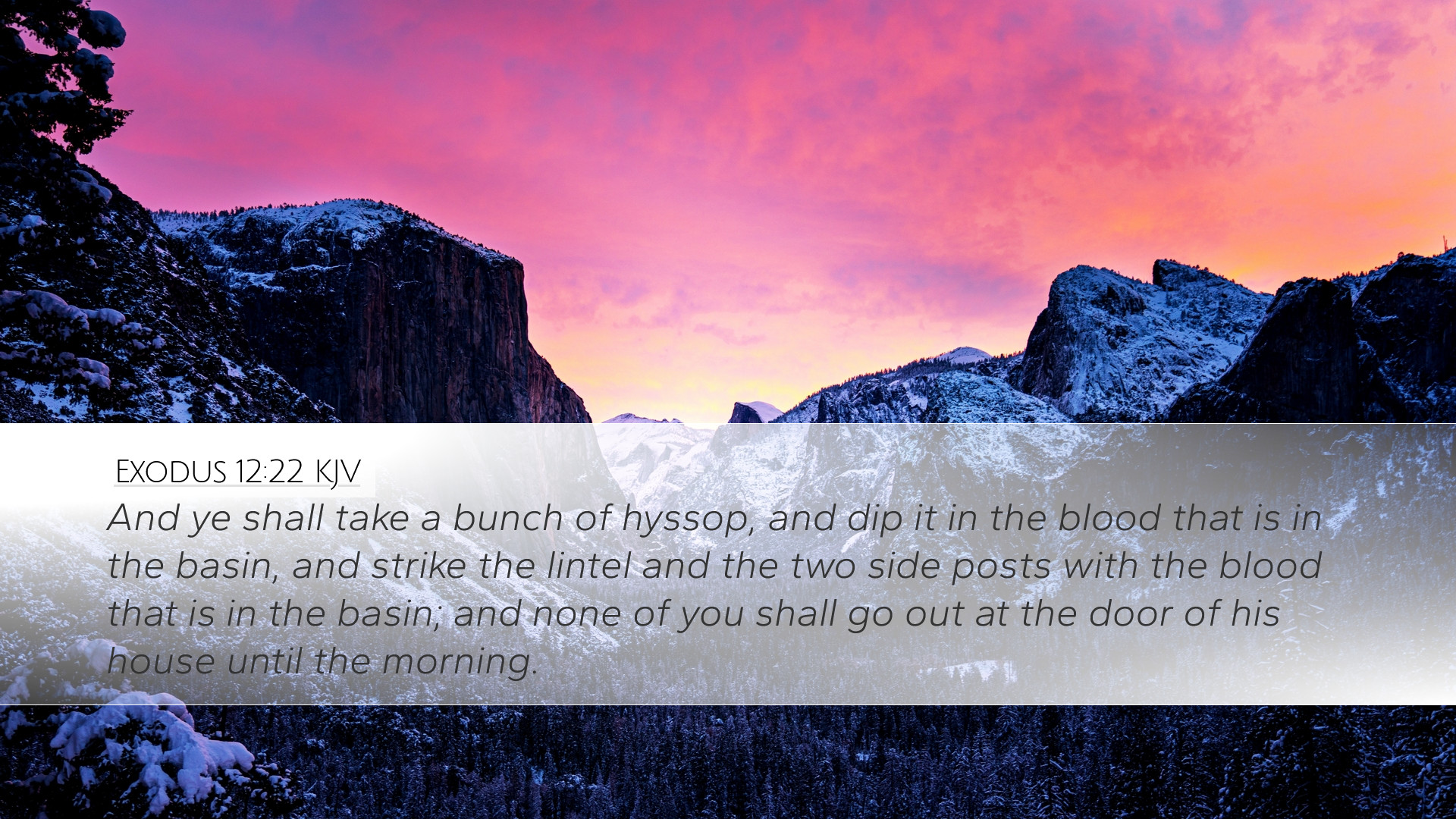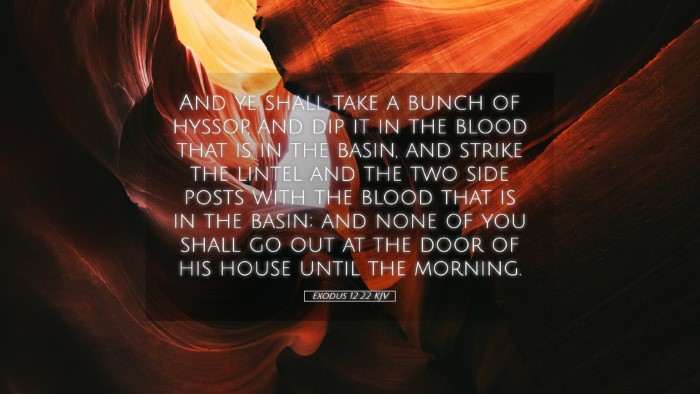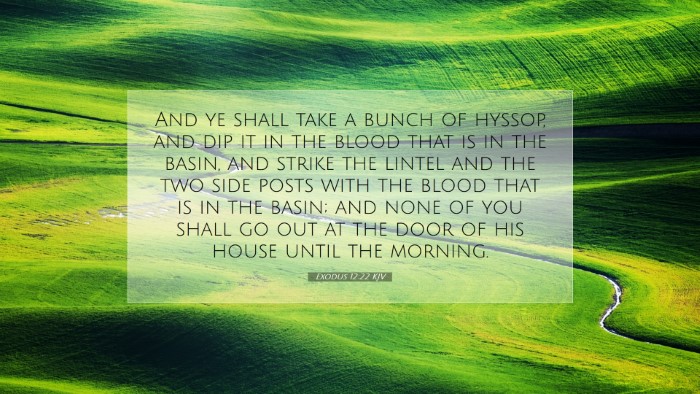Commentary on Exodus 12:22
Verse Overview: Exodus 12:22 states, "And ye shall take a bunch of hyssop, and dip it in the blood that is in the basin, and strike the lintel and the two side posts with the blood that is in the basin; and none of you shall go out at the door of his house until the morning." This command was given during the institution of the Passover, a pivotal event in Israel's history that underscores themes of salvation, judgment, and faith in God's deliverance.
Significance of Hyssop
Matthew Henry highlights the use of hyssop as significant, noting that this plant, often associated with cleansing, symbolizes purification. In Psalm 51:7, David requests, “Purge me with hyssop, and I shall be clean.” This connection reinforces the idea that the blood applied through hyssop signifies not just physical protection, but also spiritual cleansing and redemption.
Albert Barnes adds that hyssop was commonly used in ritualistic cleansing and sacrifices, signifying that the act of applying the blood to the doorposts was a physical manifestation of faith in God's promise of protection from the coming judgment. The hyssop here becomes a tool of divine assurance, linking the physical act of obedience with a deep spiritual reality.
The Role of Blood
Adam Clarke emphasizes the importance of blood in the covenant relationship established between God and His people. The application of blood is not merely a protective measure but a powerful symbol of atonement and redemption. It represents the life that is dedicated to God, echoing the greater sacrifice of Christ’s blood in the New Testament.
Matthew Henry further notes that the blood on the lintel and doorposts served as a sign of faith. Just as the Israelites were saved from judgment by the application of the Passover lamb's blood, believers today are covered by the blood of Christ, which offers eternal salvation and protection from spiritual death.
The Command to Remain Inside
The command given to the Israelites to remain inside until morning underscores an essential principle of faith and obedience. Albert Barnes points out that this instruction emphasizes the need for trust in God’s promise. Remaining indoors was a visible sign of their faith that God would deliver them. Likewise, Christian believers are called to find refuge and safety within the boundaries of God’s commandments and the community of faith.
Adam Clarke expands on this idea, indicating that this waiting period symbolizes a time of vigilance and anticipation. Just as the Israelites waited for God's deliverance, Christians today are called to patiently await Christ's return with hope and readiness.
Application of the Passage
This verse serves to instruct pastors, students, and scholars on several levels:
- Faith in Divine Protection: The application of blood by hyssop as an act of faith offers a profound commentary on the nature of belief—demonstrating that true faith always involves action in alignment with God’s commands.
- Significance of Sacrificial Atonement: The Passover lamb is a foreshadowing of Christ’s ultimate sacrifice, enriching the understanding of redemption in both the Old and New Testaments.
- Community and Obedience: The collective action of remaining indoors serves as a reminder of the importance of community in faith and the shared experience of salvation.
- The Vigilance of Believers: A call to remain spiritually vigilant and prepared, recognizing that the fulfillment of God's promises often comes after a period of waiting and trust.
Conclusion
In conclusion, Exodus 12:22 showcases the intersection of obedience, faith, and divine protection, encapsulated in the symbols of blood and hyssop. As believers reflect on this scripture, it serves as a reminder of the profound truths regarding salvation, obedience, and the expectation of God’s deliverance in both historical and contemporary contexts.


